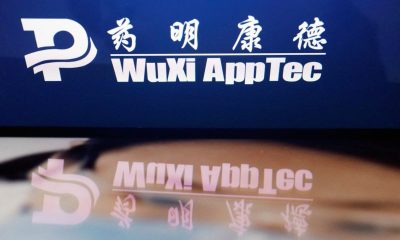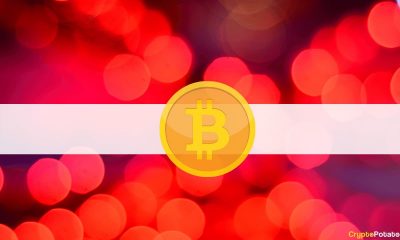Cryptocurrency
SAP Taps Circle’s USDC Stablecoin To Solve ‘Hassle’ Of Cross-Border Payments
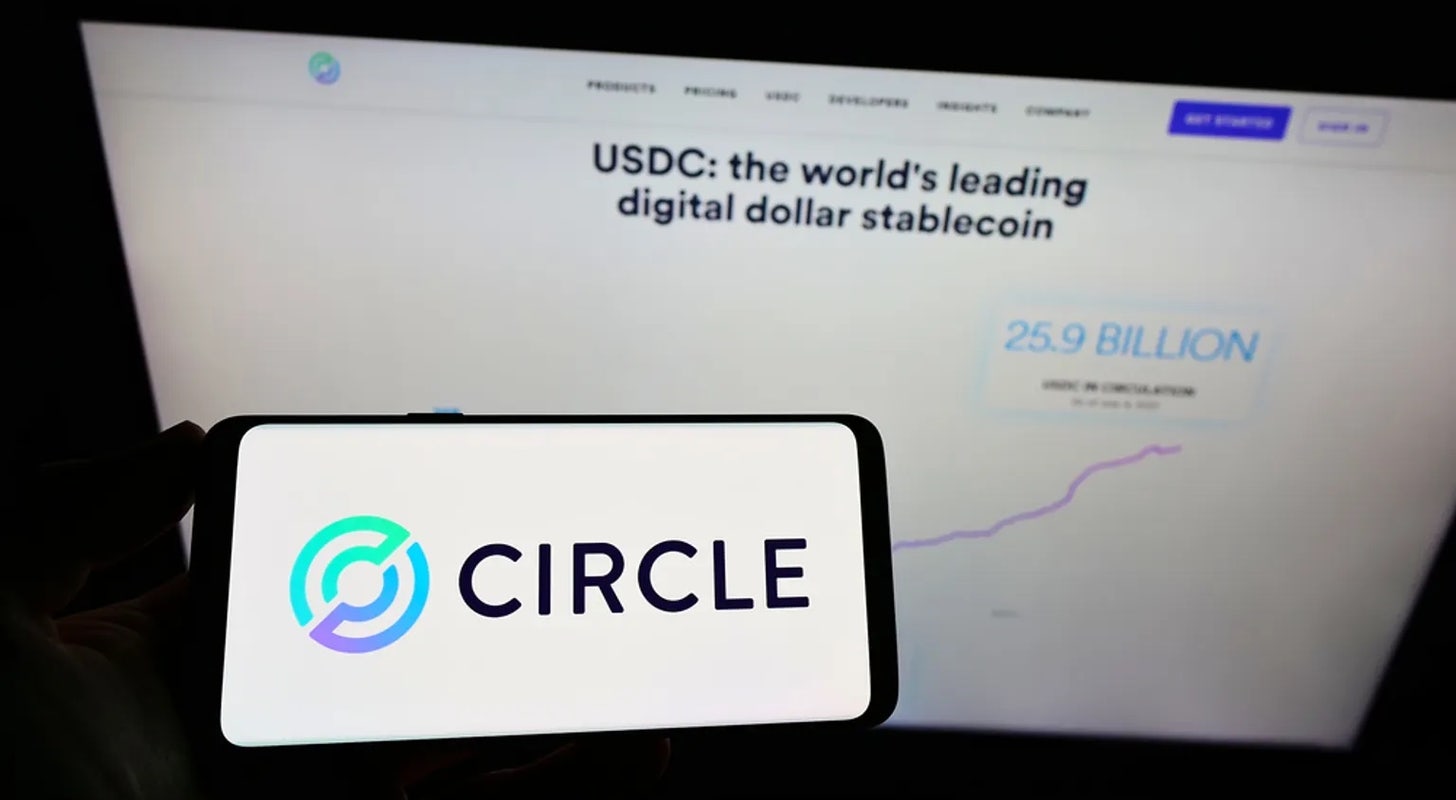
Software firm SAP is reportedly employing Circle’s USDC/USD stablecoin to examine international payment procedures. The Walldorf, Germany-based company is attempting to address the hurdles faced by businesses when executing cross-border monetary transactions. And the USDC stablecoin is an option.“Cross-border payments are a hassle for many small and mid-sized enterprises with integration business partners,” SAP’s Sissi Ruthe stated. “These major challenges can be solved with Digital Money as a means of settlement and Blockchain as the underlying technology.”Also Read: Bitcoin, Ether Cross Crucial Levels – ‘Building The Foundations For The Next Bull Cycle’SAP is executing its tests on an Ethereum ETH/USD Test Network. It is keen on solving critical issues like costs, transaction pace, and transparency in transactions.Ruthe specifically pointed out the objectives of these trials, highlighting the exorbitant costs involved, mentioning that each transaction could cost “up to 50 USD per transaction”.She also noted the extended duration for transactions, which could take “up to 7 days to transmit money.” Additionally, she touched on the issue of transparency, citing that one cannot ascertain the transaction’s status.SAP went on to reveal a “preview of the SAP Digital Currency Hub that showcases how easy cross-border payments with Digital Money will become in the future.”Read Next: Is Bitcoin Becoming An Election Issue? 2 Presidential Candidates Chime InJoin Benzinga’s Future of Crypto in NYC on Nov. 14, 2023 to stay updated on trends like AI, regulations, SEC actions & institutional adoption in the crypto space. Secure early bird discounted tickets now!
Cryptocurrency
Bitcoin Plummets Toward $60k As Federal Reserve Considers Keeping Rates Elevated
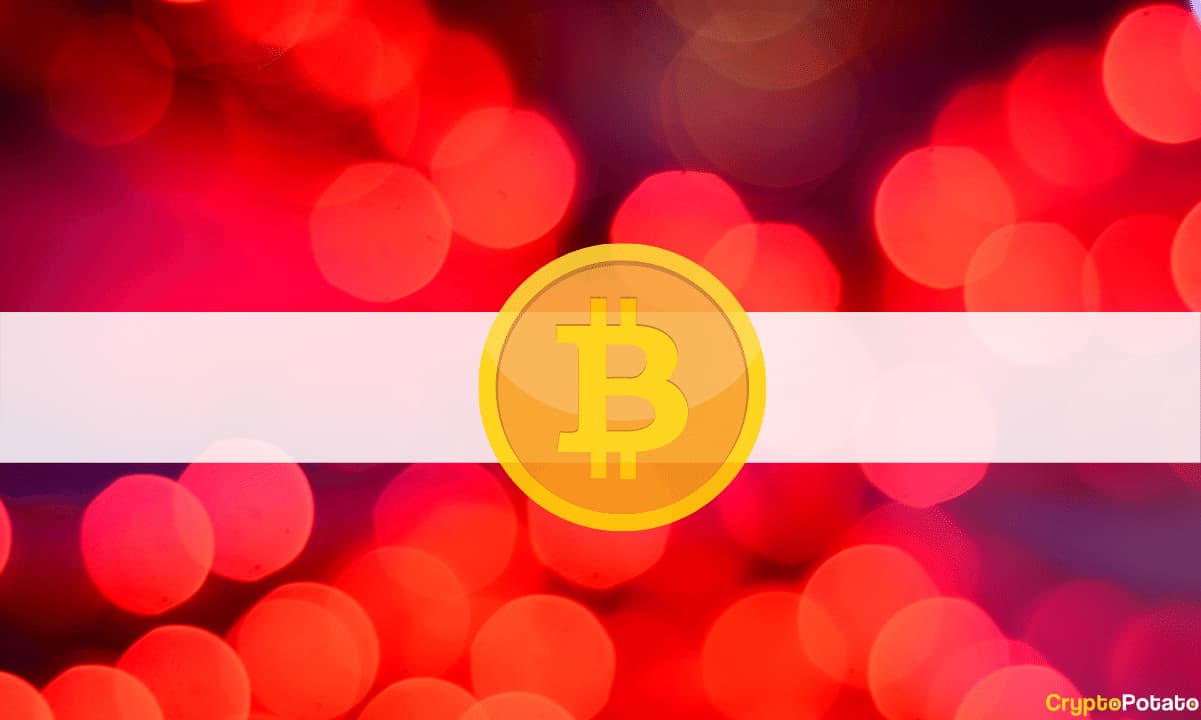
Bitcoin’s price fell 2.5% to $60,300 on Friday as Federal Reserve officials weighed their options for combatting stubborn price inflation in the United States.
- Bitcoin traded for $63,400, at noon UTC on Friday, before plummeting below $61,000 over the next few hours.
- According to Coinglass, the volatility triggered $175 million in liquidations over the past 24 hours. The single largest liquidation took place on a Binance BTC/USDT trade for $3.56 million.
- Speaking at a Louisiana Bankers Association conference in New Orleans this week, Dallas Fed President Lorie Logan suggested it may be “too early to think about cutting rates,” according to Reuters.
- “I need to see some of these uncertainties resolved about the path that we’re on, and we need to remain very flexible,” Logan said.
- For the past few months, core PCE inflation – the Federal Reserve’s preferred inflation metric – has failed to make meaningful progress towards the central bank’s 2% target. What’s more, data on Friday showed a jolt to consumers’ inflation expectations, with year-ahead expectations rising to 3.5% next May.
- During an interview with Reuters, Atlanta Fed President Raphael Bostic predicted that interest rates will still come down – but possibly only by 25 basis points before the end of the year.
- “I still have that belief,” he said, noting that it is “going to take some time” before inflation finally falls.
- Lower interest rates are perceived as a boon for Bitcoin and stocks, affording investors cheaper debt for buying up risk assets.
Binance Free $600 (CryptoPotato Exclusive): Use this link to register a new account and receive $600 exclusive welcome offer on Binance (full details).
LIMITED OFFER 2024 for CryptoPotato readers at Bybit: Use this link to register and open a $500 BTC-USDT position on Bybit Exchange for free!
Cryptocurrency
The Most Important Developments in the Ripple v. SEC Trial: Two Week Recap
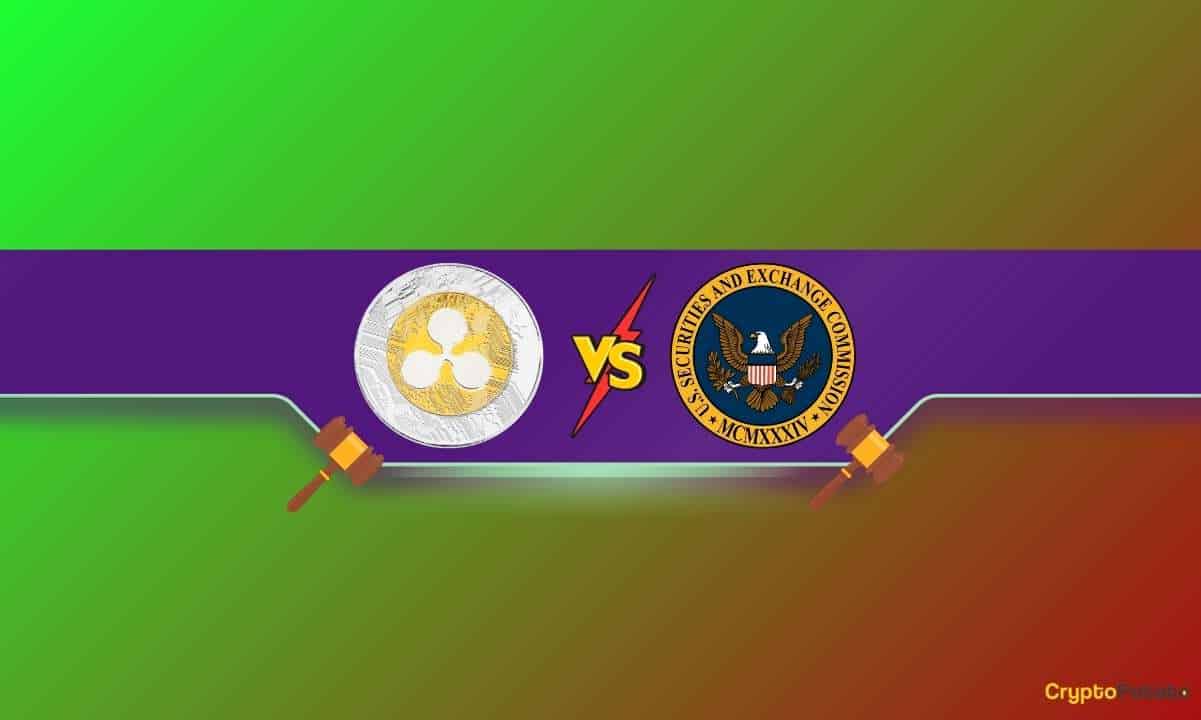
TL;DR
- The legal confrontation between Ripple and the SEC intensifies, with recent filings focusing on whether a key witness’s declaration is standard evidence or unsolicited expert testimony.
- As both parties await a judicial ruling, speculations arise about a potential settlement this summer.
The SEC’s Actions
The legal case between Ripple and the US Securities and Exchange Commission (SEC), which dates back to December 2020, has intensified in the past several weeks. One important reason for the numerous actions from both sides is the start of the trial process on April 23.
Shortly after that date, Judge Sarah Netburn entered a new scheduling order focused on the motion for remedies and entry of final judgment.
On April 29, the regulator abided by the rules by filing its opposition to Ripple’s motion to strike new expert materials. The endeavor was centered on testimony from the key witness, Andrea Fox (known as the “Fox Declaration”).
Ripple previously argued that the declaration represents an unsolicited expert opinion, whereas the SEC described the process as “standard summary evidence in support of calculations for disgorgement.”
“It’s not an expert report, does not rely on specialized experience, and does not render any opinions at all, let alone an “expert” one. Nor does it present the testimony of a percipient witness. Rather, it applies basic arithmetic to Ripple’s financial records to streamline the presentation of the evidence to Judge Torres… The court should deny Ripple’s motion,” the agency insisted.
In addition, the Commission claimed that the “Fox Declaration” consists of data derived from documents generated by Ripple itself, including tax returns and financial statements, which can be useful for determining the lawsuit’s outcome.
Ripple Strikes Back
A few days later, the company filed a letter in further support of its initial request. It stated that the watchdog failed to show that the declaration is summary evidence rather than expert testimony:
“Fox is an expert because she purports to use technical or other specialized knowledge to help the trier of fact to understand the evidence or to determine a fact in issue. She does not merely apply basic arithmetic to Ripple’s financial records, as the SEC contends.”
Ripple went further, suggesting that even if Andrea Fox could be categorized as a summary witness, the Commission failed to disclose her before the end of the discovery process.
Other Developments and a Possible Settlement
Earlier this week, the SEC filed its remedies reply brief and supporting exhibits under seal. The redacted and public version of the information was presented a day later.
According to American lawyer Jeremy Hogan, this action marked the end of the briefs phase. He claimed the regulator “went out with a whimper here,” adding that the legal battle has entered a stage with fewer developments, and both parties must wait for the judge’s ruling.
Hogan previously predicted that the lawsuit may officially be closed this summer following a $100 million settlement. This is far less than the $2 billion penalty sought by the SEC and much more than the $10 million Ripple agreed to pay.
Those willing to dive deeper and learn about the case’s specifics and its potential impact on XRP’s price feel free to take a look at our video below:
Binance Free $600 (CryptoPotato Exclusive): Use this link to register a new account and receive $600 exclusive welcome offer on Binance (full details).
LIMITED OFFER 2024 for CryptoPotato readers at Bybit: Use this link to register and open a $500 BTC-USDT position on Bybit Exchange for free!
Cryptocurrency
This is Why Ethereum is No Longer a Deflationary Network: CryptoQuant
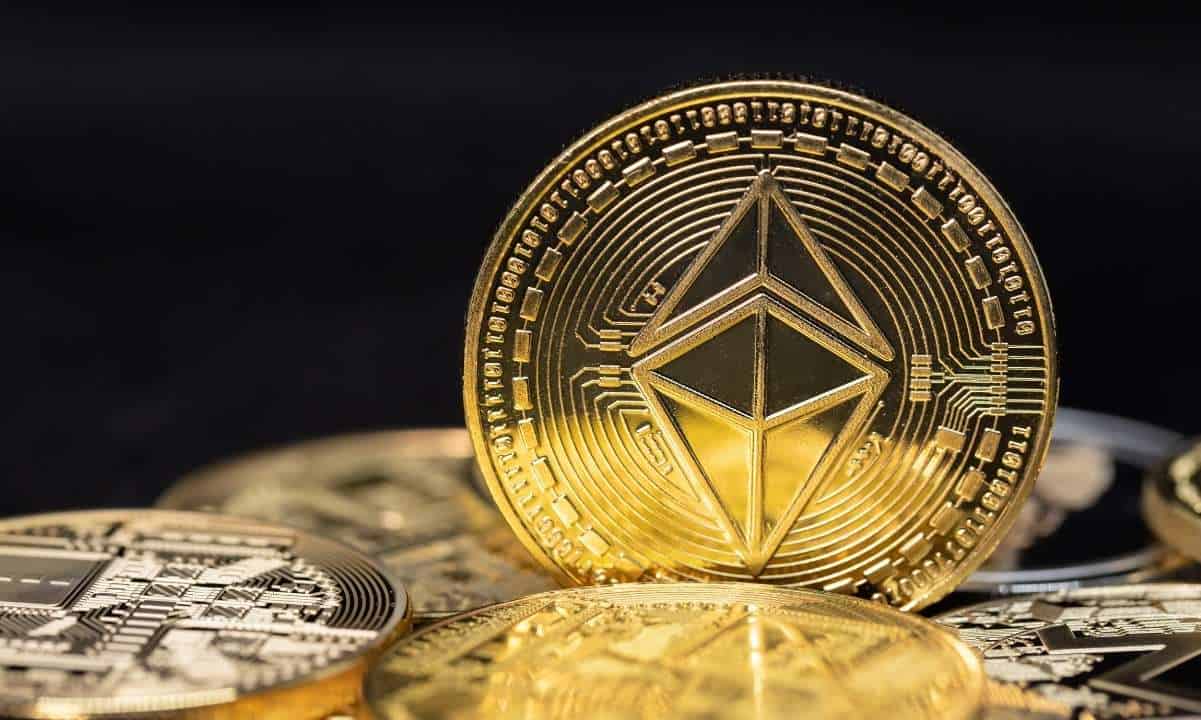
Over the years, analysts and developers have touted Ethereum as a deflationary network, presenting the blockchain as ultrasound, aligning with Bitcoin’s sound money principle. However, that seems to have changed with the network’s latest upgrade.
CryptoQuant analysts revealed in the firm’s latest weekly report that Ethereum ceased to be a deflationary network after the Dencun upgrade, implemented in March, which reduced the blockchain’s transaction fees by a substantial amount.
The Ultrasound Money Narrative
Ethereum’s ultrasound money narrative refers to the network as a system that maintains its purchasing power over time and stays resistant to inflation. Compared to Bitcoin, the term suggests that Ethereum has the potential to remain more sound by not just preserving purchasing power but reducing the supply of the network’s token, ether (ETH), over time.
In the nine years of its existence, Ethereum has implemented several upgrades to sustain the decrease in its inflationary rate or the issuance of new ETH.
The London upgrade, implemented in August 2021, introduced a mechanism that burned a portion of Ethereum’s gas fees, removing ETH from circulation with every transaction. The upgrade exerted deflationary pressure on ETH supply, making it more valuable and scarce over time.
In September 2022, developers implemented the Merge, transitioning Ethereum from a proof-of-work to a proof-of-stake network. The blockchain stopped issuing new ETH as block rewards to miners, drastically reducing the issuance and inflation rate of the crypto asset.
These two upgrades had deflationary effects on Ethereum until Dencun came along.
Ethereum is No Longer Deflationary
Dencun reduced transaction fees on Ethereum layer-2 chains and introduced danksharding, which allows the storage of additional data in blobs, making the network more efficient and less expensive.
Before the Dencun upgrade, the amount of fees burned on Ethereum was positively correlated with higher network activity; ETH supply was reduced faster, and more fees were burned due to higher network activity. However, the reduction of network fees has slashed the amount of ETH burned despite high activity.
The new supply of ETH has become positive again, increasing to its highest daily rate since the Merge, while the amount of fees burned has plummeted significantly. Hence, Ethereum is no longer deflationary.
“We conclude that, at the current rate of network activity, Ethereum will not be deflationary again, the narrative of ‘Ultra sound’ money has probably died or would need much more higher network activity to come back to life,” CryptoQuant stated.
Binance Free $600 (CryptoPotato Exclusive): Use this link to register a new account and receive $600 exclusive welcome offer on Binance (full details).
LIMITED OFFER 2024 for CryptoPotato readers at Bybit: Use this link to register and open a $500 BTC-USDT position on Bybit Exchange for free!

 Forex2 years ago
Forex2 years agoForex Today: the dollar is gaining strength amid gloomy sentiment at the start of the Fed’s week

 Forex2 years ago
Forex2 years agoHow is the Australian dollar doing today?

 Forex1 year ago
Forex1 year agoUnbiased review of Pocket Option broker

 Forex2 years ago
Forex2 years agoDollar to pound sterling exchange rate today: Pound plummeted to its lowest since 1985

 Cryptocurrency2 years ago
Cryptocurrency2 years agoWhat happened in the crypto market – current events today

 World2 years ago
World2 years agoWhy are modern video games an art form?

 Stock Markets2 years ago
Stock Markets2 years agoMorgan Stanley: bear market rally to continue

 Economy2 years ago
Economy2 years agoCrude oil tankers double in price due to EU anti-Russian sanctions



